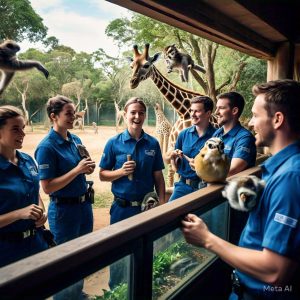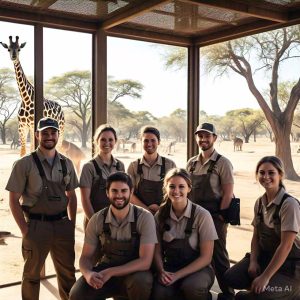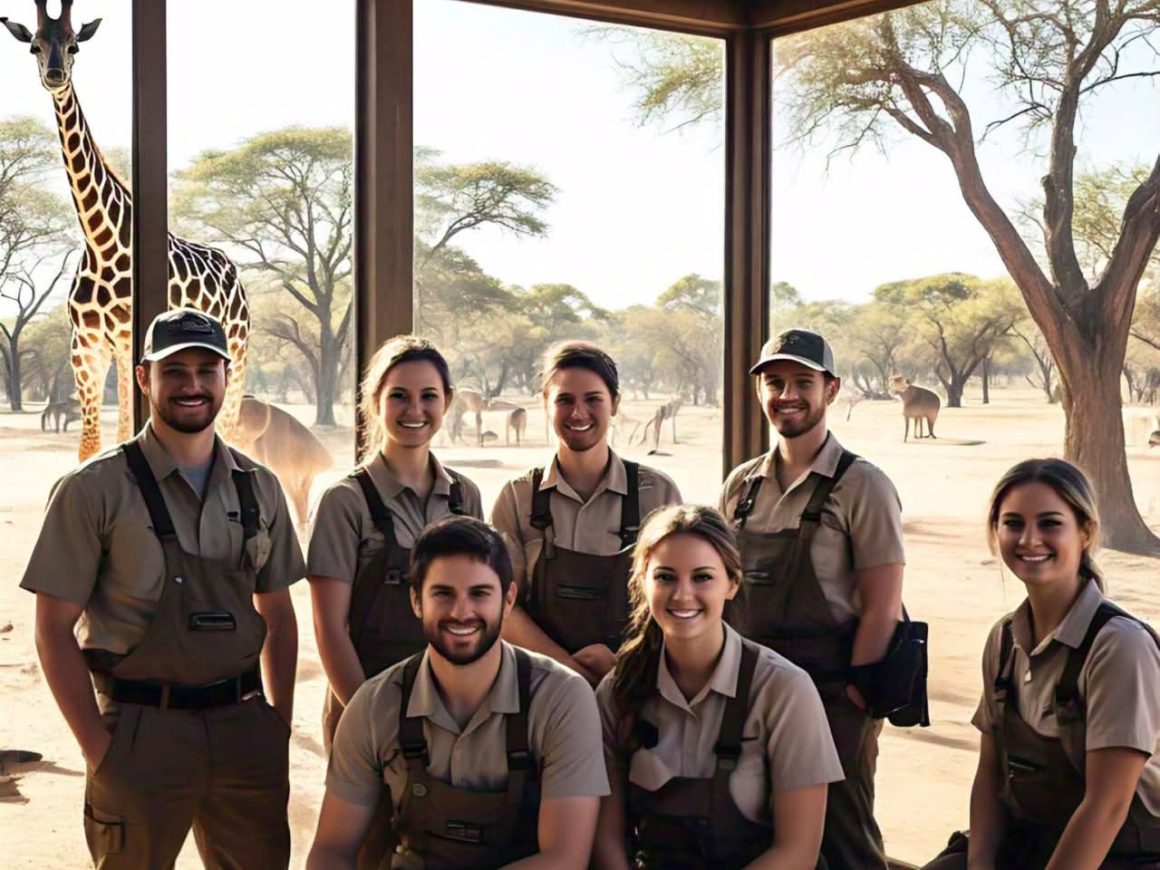
Australia is renowned for its unique and diverse wildlife, from kangaroos and koalas to crocodiles and exotic bird species. This rich biodiversity has made the country a global leader in wildlife conservation and zoological attractions. As interest in animal care and conservation grows, the demand for skilled professionals to manage and care for animals in zoos has risen significantly.
If you’re passionate about working with animals, now is an excellent time to explore opportunities in this field. Zoos across Australia are actively hiring, creating a surge in the demand for dedicated and skilled zoo keepers needed in Australia. This article will guide you through the requirements, responsibilities, and benefits of pursuing a career as a zoo keeper in Australia.
Why Are Zoo Keepers Needed in Australia?
The increasing demand for zoo keepers in Australia is driven by several factors:
1.Conservation Efforts
Australian zoos play a vital role in wildlife conservation. With many native species facing threats from habitat loss, climate change, and invasive species, zoos are essential for breeding programs, research, and public education.
2.Growing Tourism Industry
Zoos and wildlife parks are some of Australia’s top tourist attractions, drawing millions of visitors annually. As the tourism sector continues to recover and expand, more professionals are needed to ensure animals are cared for and visitors have an enriching experience.
3.Education and Awareness
Modern zoos focus on educating the public about the importance of biodiversity and conservation. Zoo keepers are central to this mission, serving as educators and ambassadors for wildlife.
4.Expansion of Facilities
Many Australian zoos are expanding their facilities and introducing new exhibits to accommodate growing visitor numbers and improve animal welfare. These expansions require additional staff to manage operations.
What Does a Zoo Keeper Do?
Zoo keepers are responsible for the daily care and management of animals in zoological facilities. Their duties include:
1.Animal Care
•Feeding and preparing specialized diets for animals.
•Ensuring animals have clean and safe habitats.
•Monitoring the health and behavior of animals.
2.Enrichment Activities
•Designing and implementing activities to keep animals mentally and physically stimulated.
•Creating environments that mimic natural habitats.
3.Health Monitoring
•Observing animals for signs of illness or injury.
•Assisting veterinarians with medical procedures and treatments.
4.Public Engagement
•Conducting educational presentations and tours for visitors.
•Sharing information about the animals and their conservation status.
5.Record Keeping
•Maintaining detailed records of animal diets, behaviors, and medical histories.
Qualifications and Skills Required to Become a Zoo Keeper in Australia
To meet the growing need for zoo keepers in Australia, aspiring professionals must possess a combination of education, experience, and personal attributes.
Educational Requirements
•A Certificate III or IV in Captive Animals, offered by accredited institutions, is often required.
•A degree in zoology, wildlife biology, or animal science can provide additional career opportunities.
Experience
•Practical experience, such as volunteering or internships at zoos, wildlife parks, or animal sanctuaries, is highly valued.
•Hands-on experience with animal care demonstrates commitment and builds essential skills.
Key Skills
1.Animal Knowledge
•Understanding animal behavior, dietary needs, and habitats.
•Familiarity with native Australian wildlife is a plus.
2.Physical Fitness
•Zoo keeping is physically demanding, requiring stamina and strength to handle large animals and maintain enclosures.
3.Problem-Solving
•The ability to adapt to challenges, such as animal health issues or habitat repairs, is critical.
4.Communication Skills
•Engaging with visitors and collaborating with colleagues are essential parts of the job.
5.Passion and Patience
•A genuine love for animals and the patience to work with them daily is a must.
How to Apply for Zoo Keeper Positions in Australia
If you’re ready to pursue a career as a zoo keeper, follow these steps:
1.Research Job Opportunities
Look for job openings on zoo websites, wildlife park career pages, and job boards like Seek and Indeed. Major Australian zoos, such as Taronga Zoo, Australia Zoo, and Melbourne Zoo, frequently list positions.
2.Meet the Educational Requirements
Complete relevant courses in animal care, zoology, or captive animal management.
3.Gain Practical Experience
Volunteer or intern at zoos, wildlife sanctuaries, or veterinary clinics to gain hands-on experience.
4.Prepare Your Application
•Create a professional resume highlighting your qualifications, experience, and passion for animal care.
•Include references from previous internships or volunteer work.
5.Ace the Interview
Be prepared to discuss your experience, knowledge of animal care, and willingness to take on the physical and emotional challenges of the job.
Job Opportunities for Zoo Keepers in Australia
The demand for zoo keepers spans various types of facilities, offering diverse career opportunities:
1.Zoos and Wildlife Parks
Large facilities like Taronga Zoo, Australia Zoo, and Perth Zoo require skilled keepers for their wide range of animal species.
2.Aquariums
Marine-focused facilities, such as SEA LIFE Sydney Aquarium, hire specialists for aquatic animal care.
3.Wildlife Sanctuaries
Sanctuaries like Healesville Sanctuary focus on native species and conservation.

4.Research Institutions
Some zoos partner with universities and research organizations, creating opportunities to work on conservation and scientific studies.
Challenges of Being a Zoo Keeper
While rewarding, a career as a zoo keeper comes with its challenges:
1.Physical Demands
•The job involves long hours, heavy lifting, and working outdoors in various weather conditions.
2.Emotional Challenges
•Caring for sick or injured animals can be emotionally taxing.
3.Unpredictable Schedules
•Zoo keepers often work weekends, holidays, and irregular hours.
4.Health and Safety Risks
•Handling large or dangerous animals requires strict adherence to safety protocols.
Despite these challenges, many zoo keepers find the work deeply fulfilling and worth the effort.
Benefits of Being a Zoo Keeper in Australia
A career as a zoo keeper offers numerous benefits, including:
1.Connection to Nature
Work closely with animals and contribute to their well-being.
2.Conservation Impact
Play a vital role in protecting endangered species and educating the public about wildlife conservation.
3.Job Satisfaction
Enjoy the rewards of nurturing animals and sharing your passion with others.
4.Career Growth
Opportunities to specialize in areas like animal training, veterinary support, or conservation research.
5.Work in Unique Settings
From tropical rainforests to coastal habitats, zoo keepers work in some of the most beautiful and diverse environments.
Conclusion
The increasing demand for zoo keepers in Australia reflects the growing importance of animal care and conservation in today’s world. As zoos expand and conservation efforts intensify, there’s never been a better time to pursue a career in this field.
If you’re passionate about animals, eager to contribute to conservation, and ready for a physically demanding yet rewarding career, becoming a zoo keeper in Australia could be the perfect path for you. Start by gaining the necessary qualifications, acquiring hands-on experience, and exploring job opportunities at Australia’s leading zoos and wildlife parks.
Join the dedicated professionals who care for Australia’s incredible wildlife and make a meaningful difference in the world of animal conservation. Zoos across the country are hiring—take the first step toward an exciting and fulfilling career today!






